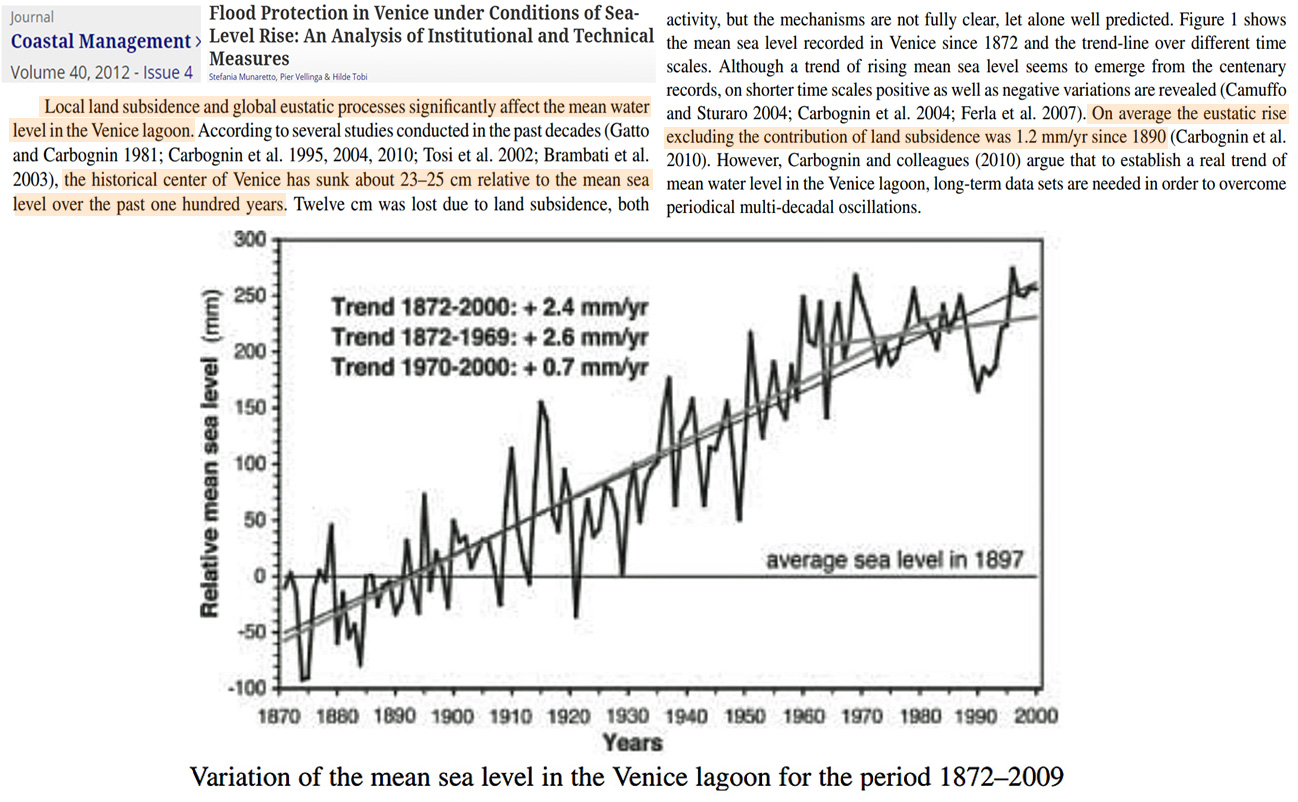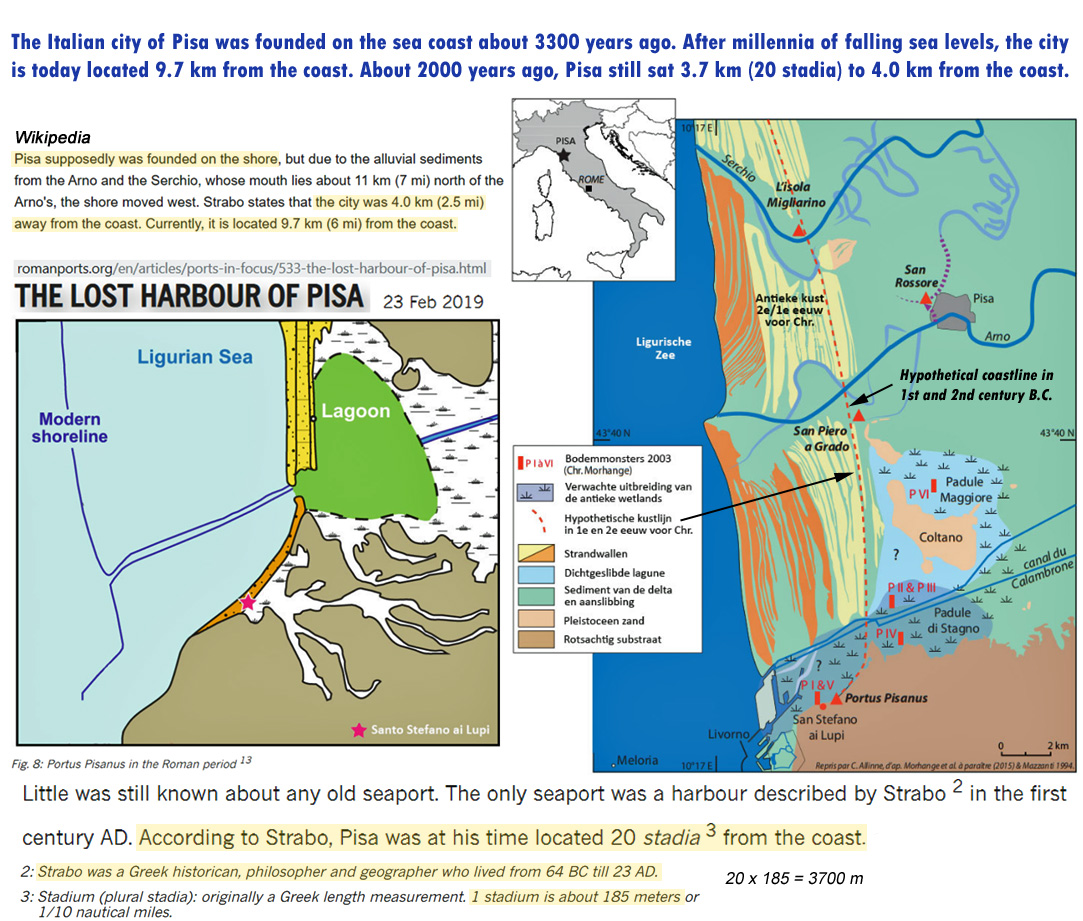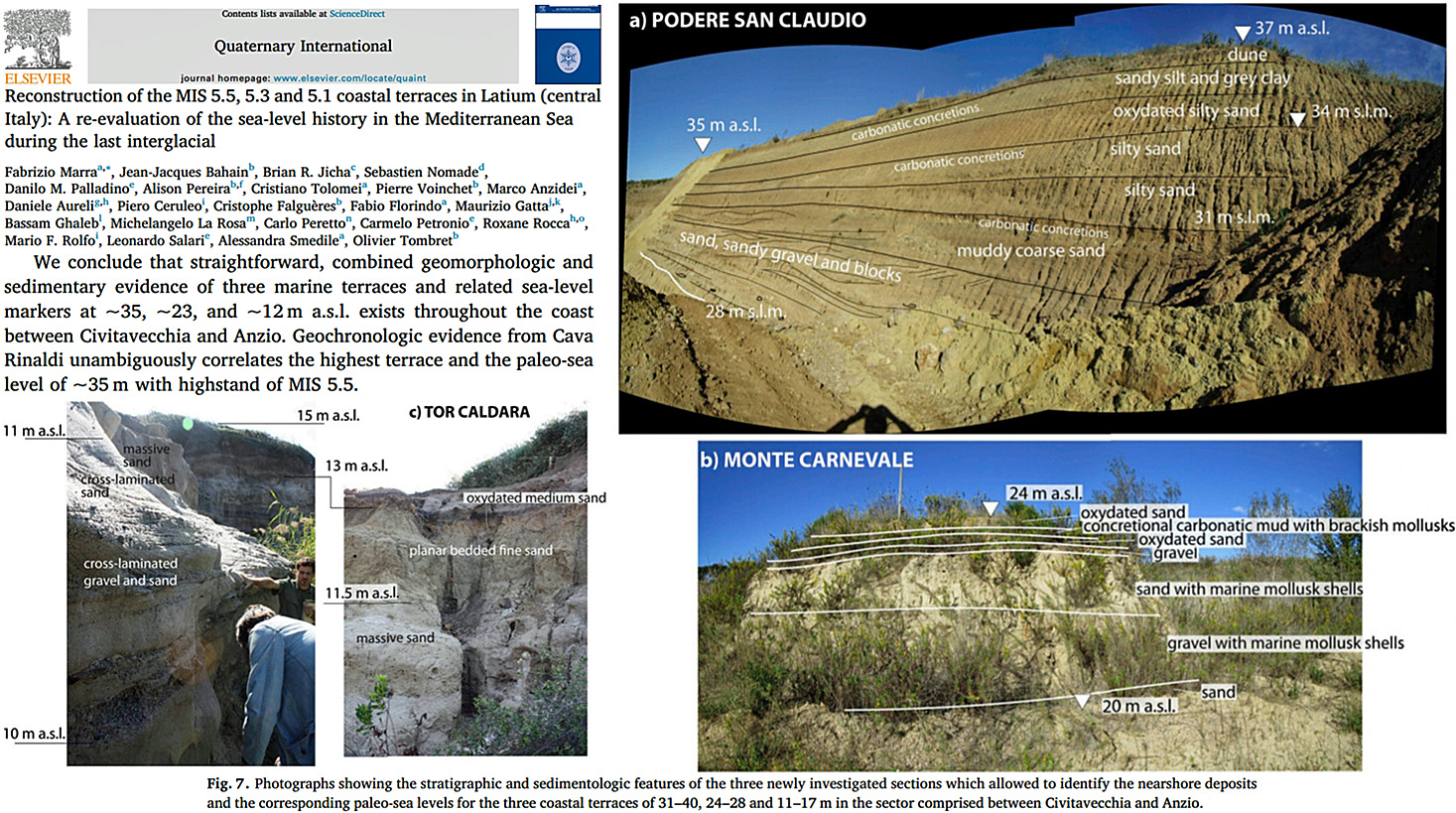Paleoclimate evidence shows there is little to no link between atmospheric CO2 concentration and relative sea level.
Venice, the treasure of Italy, is a city built on a mud swamp. Consequently, in the last 100 years it has sunk about 25 cm, or 2.5 millimeters per year (Munaretto et al., 2012).
The lagoon city had its worst flooding event ever recorded in 1966, when CO2 concentrations were still about 320 ppm.
Last week Venice flooded again, and, as expected, journalists blamed climate change and rising atmospheric CO2.
However, when we consider sea level rise rates for Venice averaged 2.6 mm/yr during 1872-1969, but then decelerated to 0.7 mm/yr for 1970-2000 (Munaretto et al., 2012), these trends are the opposite of what would be expected if CO2 emissions were driving sea level rise.

Image Source: Munaretto et al., 2012
Pisa’s history provides a sea level perspective
Italy’s Pisa is famous for its leaning tower.
The city was originally built on the coast of the sea about 13 centuries before the common era (~3300 years ago). At that time, sea levels were meters higher than they are now despite the low (~270 ppm) CO2 concentrations.
During the Roman Warm Period, Pisa was still close enough to the sea coast (~4 km) to be a busy harbour (Huissen and de Graauw, 2019), accessible by canal. Dozens of ships dating to Roman times have been found buried beneath the city in recent decades.
In the last 2000 years, however, sea levels have retreated so thoroughly that Pisa now sits 9.7 km from the sea coast.

Image Source: Huissen and de Graauw, 2019
Italy’s sea level during the last interglacial
About 130,000 to 120,000 years ago, or during the last interglacial, CO2 levels peaked at 280 ppm.
Yet along the coasts of central Italy there are marine mollusck shells buried in silty sand and clay 12-35 m above today’s sea levels dating to this time period (Marra et al., 2019).

Image Source: Marra et al., 2019
In sum, the record of coastal changes throughout both ancient times and in the modern era do not support the conclusion CO2 levels are a driver of sea level change.





There was a time, back in the day, when the coast line was at the city of Troy, today it is a couple of miles away from the ruins.
Additionally, they over-pump water from the aquifer under the city, causing subsidence.
Global bullshit.
The coast between Anzio and Civitavecchia was influenced by tectonic vertical movement …
Exactly.
This NTZ post should be amended with a proper tectonic context research.
Lets say Venice on average sunk 28 cm since 70 years.
The biggest flood in the 60ties was still higher than this years floods.
Could one say that Venice should have seen higher floods already with the alleged sea level rise or even un-alleged from sinking into the ground?
Where are they?
[…] Read more at No Tricks Zone […]
[…] https://notrickszone.com/2019/11/18/co2-levels-are-not-whats-threatening-venice-sea-levels-were-mete… […]
[…] CO2 Levels Are NOT What’s Threatening Venice…Sea Levels Were Meters Higher With Much Low… […]